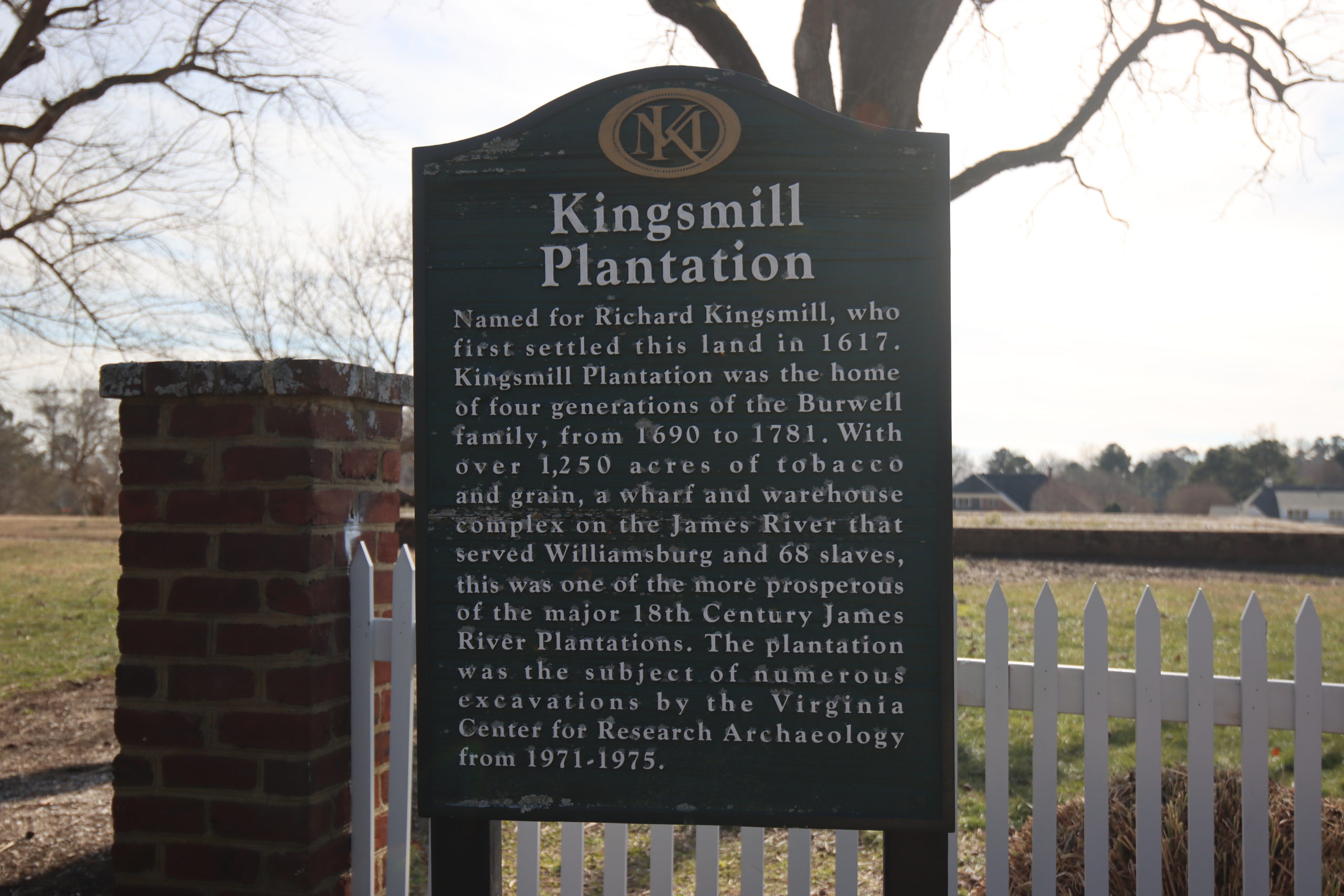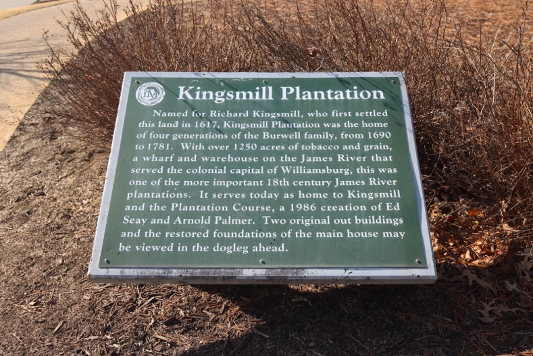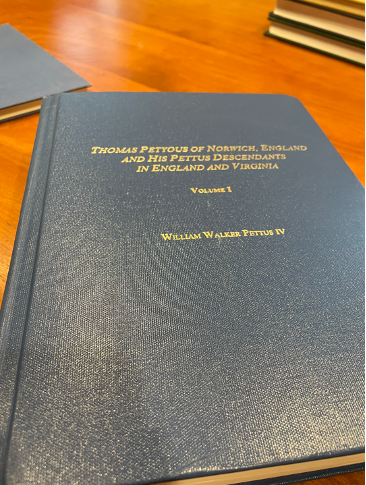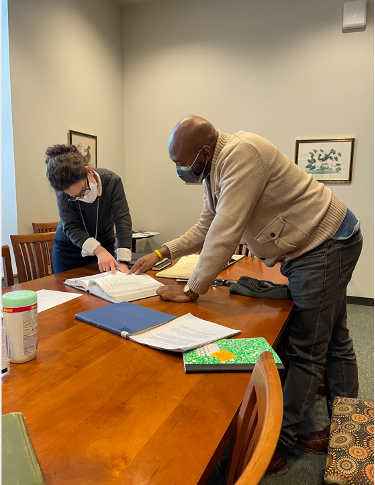
16 May Honoring and Preserving African American History in Williamsburg: How My Family Tree Brought Me Here
As a family historian and founder of History Before Us, gathering oral history and conducting tireless research has been a staple of my innate being for the past 20 years. I’ve always been inquisitive about my family surnames and how we settled in various southern states via the transatlantic and domestic slave trade.
I was born in Danville, Illinois, and raised in Clarksville, Tennessee. Like many others, my family left the south during one of the many northern migrations for Blacks trying to escape Jim Crow, sharecropping, less-than-favorable wages, and inadequate educational opportunities. When I was five years old, we returned to Tennessee, which gave me the opportunity to congregate with a majority of my family members who never “went north.” This side of my family is the Pettus family, which represents my paternal side of the tree. The family name has long been associated with gospel singers, preachers, and even a heroic Olympic gold medalist from Clarksville – none other than Wilma Rudolph.
How did this journey bring me to Williamsburg?
Years of sleuthing at county archives, visiting local libraries, and examining a book about the Pettus Family Reunion helped me curate the origins of our family genealogy. The eldest Pettus in our family tree is my great-great-grandfather, Wilson Pettus. Per his birth records, death records, and other sources, Wilson was born in Virginia in 1817. He was a preacher who fathered eight children and took in two additional children with his wife, Liddy Ann Ferguson, who was also born in Virginia. Their eldest daughter, Maria Pettus, was born in 1854. An online search of Virginia’s Pettus family history led me to a book, “Kingsmill Plantations, 1619-1800: Archaeology of Country Life in Colonial Virginia,” by William M. Kelso. This book confirmed that I was heading in the right direction with my research, as did a statement from an elder Pettus family member who said, “we came from where those Pettuses came in at in Virginia.” An exploration of Pettus matches on genealogy services like Ancestry.com and 23andMe, provided additional confirmation that pointed me towards Williamsburg.
Learning more about the Pettus family at Kingsmill Plantation
While in Williamsburg, I knew that the Kingsmill Plantation had to be one of my stops. During my visit, I stayed at the Kingsmill Resort, which once housed the plantation site for Colonel Thomas Pettus’ family and their enslaved. Subsequently, his son, also named Thomas, became the owner of what was known as the Littletown Plantation. While my great-great-grandfather Wilson wasn’t alive when Col. Thomas Pettus and his children lived at Littletown, he was most likely connected to this family tree.
In 1860, a different Thomas Pettus (who was white) was listed on the Montgomery County, Tennessee census as having 28 enslaved people. Stephen Pettus, a relative of other family members named above, enslaved 15 people per the 1820 census. Two of these people were males under 17 years old. From an age comparison standpoint, one of these men could very well be my great-great-grandfather Wilson. Due to scant records, careful speculation sometimes proves to be the best route for a sense of genealogical clarity. In the 1860 slave schedule, this Pettus line was the only white Pettus family in Montgomery County being born in or having ancestors from Virginia.
This leads me to Wilson’s wife, Liddy Ann Ferguson, who is my great-great-grandmother. Per primary sources, her parents were from Virginia and most likely arrived in Montgomery County with the only Ferguson enslaver in the county, a very rich one at that. His name was Robert French Ferguson, a graduate from William & Mary. His brother was the peculiar Jesse Babcock Ferguson, a Universalist and Unitarian believer who was loyal in his stance on the “God-appointed relation of master and slave.” While Jesse was preaching the gospel throughout Kentucky and Tennessee, his brother, Robert, was living in Montgomery County (per the 1850 census), next to a Mary Pettus. Mary was born in Virginia between 1780 and 1790 and was the wife of the aforementioned Stephen Pettus and a mother to Thomas.
Like the Pettus family, Robert French Ferguson’s household was the only Ferguson family in the county. His property value was $34,000 dollars, and he held 18 people enslaved. One of the female’s age matched my great-great-grandmother’s on the slave schedule. The fact that these families lived next door to each other was very helpful in my genealogy research.

Diving into more research at the John D. Rockefeller Jr. Library
While at the John D. Rockefeller Jr. Library, located in Colonial Williamsburg, I gained access to numerous resources related to the Pettus and Ferguson families. When comparing notes from Tennessee and information housed at the library, it made my search easier and more confusing all at once. I found that many of the white Pettus family members left the Williamsburg area and settled in other parts of Virginia, Kentucky, Alabama, and Tennessee. In addition to relocating, they also passed down the same names over and over again. The library staff and I came across multiple men named John, Thomas, and Stephen, which originally made it hard to identify who exactly the Pettus enslaver was. That was until we looked through the book titled “Thomas Petyous of Norwhich, England and His Pettus Descendant in England and Virginia”by William Walker Pettus IV. This book validated the branch of Pettus families that originated at the Littletown Plantation. Those were the same people that eventually made their way to Montgomery County, Tennessee, by way of Prince Edward County, Virginia.


Sifting through this information was like trying to find a needle in a haystack, but it helped validate truth versus ambiguous speculations that I had hoped were correct. Genealogy for Black families can be difficult, but with advanced technology and a growing interest in the subject matter, roadblocks are being removed daily. Staying persistent and utilizing collaborative opportunities with others is the key to success.
With this new found information from my trip to Williamsburg, I plan on continuing my journey and taking a deep dive into bills of sale, wills, tax records, newspapers, and other primary sources.
One step closer…
This visit afforded me the ability to share pertinent information with family members who have been researching our genealogy since the 1980s. The experience was empowering, and provided me with an opportunity to add more content to my family tree. Visits like these impart more optimism towards further research and discovery. I sure am pleased, and my family will be, too.



Connor Smith
Posted at 22:22h, 17 MayEasy to follow invigorating post with excellent visual aids. A helpful breakdown of your research process.
Vernon and Susan Pettus
Posted at 12:57h, 31 MayExcellent information.
We are trying to enroll our grandson Michael Pettus into Williams and Mary.
We are Pettus from Warm Springs Va
Our research has found Henry and Mary Pettus and his brother Alexander Pettus.
We would be delighted for you to attend the Pettus Family 50th Reunion the first weekend in August in Warm Springs. Vs.
Lineage
Posted at 05:23h, 01 MayMy family, Pettus are from the Prince Edward, Montgomery, and mainly Chase City, VA. This was definitely great to read. My research made it back from Virginia to England, where placed on royal documents as knights and lords. My great, great, great grandfather was George Pettus. My father is also a George, family name Pettus. (By the way I might’ve missed a great).
admin
Posted at 15:06h, 09 MayThank you for reading. I suspect the our ancestors where both in the Williamsburg area.
Do you have a family tree? Any other surnames connected to the area?
J Drabek
Posted at 23:12h, 03 Decemberhave you checked into the Evan Raglan Sr. family, he married Susanna Pettus after being an indentured servant for her father Stephen Pettus, he ended up owning Stephen Pettus plantation
admin
Posted at 17:28h, 13 DecemberThank you for this information. I look forward to researching!